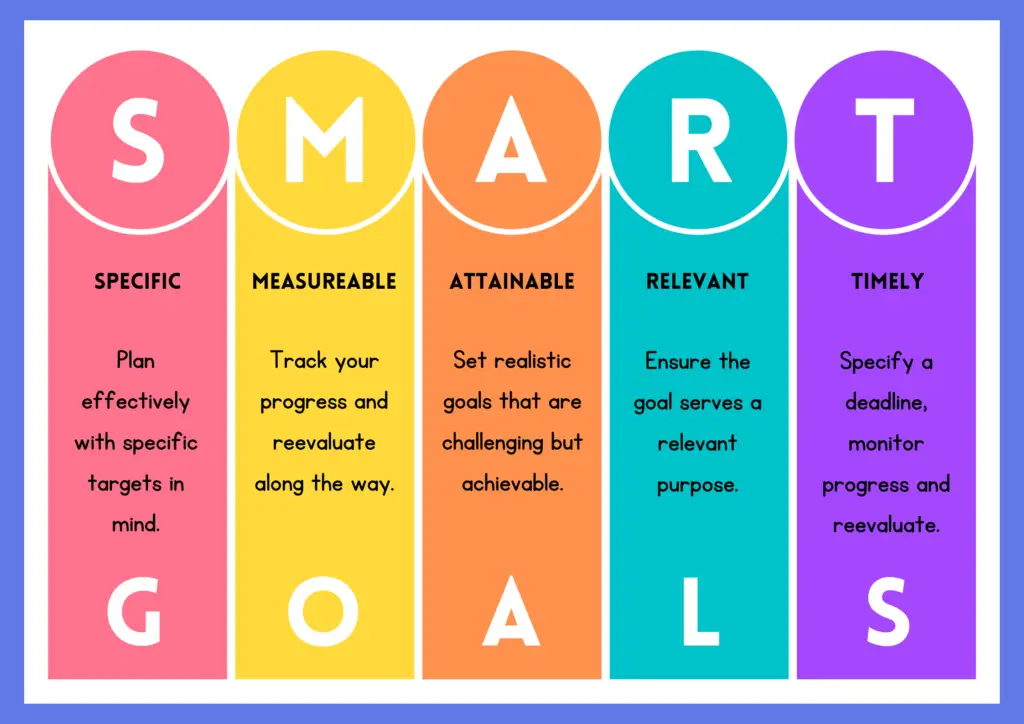You’ve worked hard, you’re an exemplary student and you have a perfect command of the grammar and vocabulary required for the level you’re aiming for. Congratulations, you’ve already taken a big step! But be warned: this does not guarantee that you will pass your French exam. Why not? Because success in a language exam does not depend solely on your knowledge of the language.
It’s a fact that many people discover too late, but it makes all the difference. After accompanying hundreds of students in their preparation, I’ve seen this time and again. Of course, knowing grammar and vocabulary is essential, but it’s not enough. The difference lies elsewhere. And I can tell you that as a teacher.
What really makes the difference? Your state of mind, the way you deal with stress, and above all the way you prepare for the exam itself. Well thought-out preparation, which goes beyond simple cramming, can turn your efforts into real success.
At Feel Good French, we believe in a holistic and personalised approach to help you through this important stage. And to help you structure your revisions, you can download a free PDF progress diary, designed to track your progress and keep you motivated. Here’s our best advice on how to succeed calmly and effectively.
1. Getting started: choosing the right level and the right date to pass your French exam
Before plunging into your revisions and choosing the date of the test, it is essential to make two important decisions: the type of exam you are going to take and the level that corresponds to your skills and objectives. These strategic choices will influence the quality of your preparation and your chances of success.
Understanding the exams : DELF/DALF or TEF/TCF?
French language exams have different formats and objectives. Choose the one that best suits your needs:
- DELF/DALF: these internationally recognised qualifications attest to a specific level in the CEFR (Common European Framework of Reference for Languages).
- DELF (A1 to B2): perfect for validating your general skills in French. These levels are often required for intermediate-level jobs or studies.
- DALF (C1 to C2): for advanced learners wishing to demonstrate a thorough command of the language. These levels are often required for higher education or demanding careers.
- TEF/TCF: unlike DELF/DALF, these tests assess your skills at a given moment and do not certify a permanent level. They are like a snapshot of your level at a given moment. They are often required for :
- Immigration: TEF for Canada or Quebec, or TCF for other residence procedures.
- French nationality: the TCF is often required to prove your command of the language.
Feel Good French tip: if you need long-term certification, opt for the DELF/DALF. If your aim is administrative (immigration, naturalisation), opt for the TEF or TCF.
Choosing the date of the French exam
To prepare calmly for your French exam, make sure you choose a realistic date that motivates you without stressing you out. Take the time to consult the calendars of language centres such as the Institut français and the Alliance Française, in general you will have to schedule a few month ahead. To plan your French exam effectively, I’m sharing the specifics of exam centres in different cities.
To prepare calmly for your French exam, make sure you choose a realistic date that motivates you without stressing you out. Take the time to consult the calendars of language centres such as the Institut français and the Alliance Française, in general you will have to schedule a few month ahead. To plan your French exam effectively, I’m sharing the specifics of exam centres in different cities.
Note that the following examples demonstrate that each center may have specific arrangements for sessions and covered topics. I recommend checking the specific dates with the nearest center to plan an effective and stress-free preparation.

- London: The Institut Français du Royaume-Uni offers several DELF/DALF sessions throughout the year, with registrations opening approximately two months before each session.
Institut Français - Paris: The Alliance Française de Paris regularly organizes sessions for all levels. Registrations are usually done online, and it is advised to register as soon as they open to secure a spot.
Alliance Française - Geneva: The Alliance Française de Genève offers examination sessions several times a year. Registrations generally close 6 to 8 weeks before the exams. Check their website for more details.
Alliance Française de Genève - New York: The French Institute Alliance Française (FIAF) in New York provides DELF/DALF sessions tailored to the needs of local candidates. Registrations typically open two months before the exams. Check their website for more details.
FIAF - Brussels: The Alliance Française de Bruxelles-Europe organizes sessions regularly, often around March, June, September, and December. Check their website for more details.
Alliance Française de Bruxelles-Europe - Sydney: The Alliance Française de Sydney offers sessions aligned with Australian school semesters, allowing students to plan their exams without disrupting their studies. Check their website for more details.
Alliance Française de Sydney - Tokyo: The Institut Français de Tokyo organizes DELF/DALF sessions in spring and autumn. For instance, for the spring session, registrations are generally open from mid-February to mid-April, with written exams taking place in early June. Oral exams may vary depending on the center, so it is recommended to check the specific center’s calendar.
Institut Français de Tokyo - Montreal: The Alliance Française de Montréal is an authorized center for DELF/DALF exams. Exam sessions are offered several times a year, with specific dates for each level. Registrations are done online, and early registration is advised as spots are limited.
Alliance Française de Montréal
2. Structure Your Exam Preparation with SMART Goals
An effective preparation strategy relies on well-defined objectives. The SMART method—Specific, Measurable, Achievable, Relevant, and Time-bound—is an excellent approach to set clear and actionable goals. This method transforms vague ideas into concrete actions by establishing clear success criteria and realistic deadlines. Here’s how to organize your efforts and track your progress:
- Specific: “Improve my written production using complex sentences and logical connectors.”
- Measurable: “Complete three listening comprehension exercises per week and achieve an 80% score.”
- Achievable: “Learn 50 new vocabulary words each week.”
- Relevant: “Focus on exam-specific skills like building arguments.”
- Time-bound: Set clear deadlines, such as “Master logical connectors within two weeks.”

Feel Good French Tip: Download our Progress Journal in PDF format to note your SMART goals, track your steps, and stay motivated.
Download the PDF here.
3. Manage Your Time Wisely To Prepare Your French Exam
Smart time management is a cornerstone for effective and stress-free preparation. Here are some methods to structure your study sessions:
- The Pomodoro Technique: Work in 25-minute sessions, followed by 5-minute breaks. After four cycles, take a longer break. This approach helps you stay focused without burning out.
- Plan Your Study Sessions: Organize your days around the four key skills (listening, speaking, reading, writing):
- Monday: Speaking.
- Wednesday: Listening.
- Friday: Writing.
- Target Your Weak Spots: Identify your weak areas and focus your efforts on improving them.

4. Use the Pareto Principle to Pass Your French Exam (DELF/DALF/TEF/TCF)
Success in French exams like DELF, DALF, TEF, or TCF isn’t just about the number of hours you spend studying. What if I told you that by working smarter, not harder, you could boost your chances of success? At Feel Good French, we believe in holistic learning, where every effort is intentional and drives you closer to your goal.
This is where the Pareto Principle, or the 80/20 rule, comes into play. It states that 80% of results come from just 20% of the most strategic efforts. In other words, it’s not about doing more but about focusing on what truly matters and putting your energy into high-impact activities.
How to Use the Pareto Principle for French Exams
At Feel Good French, we apply this method to help you transform your preparation into a winning strategy:
- Prioritize Key Skills:
Instead of trying to master everything, focus on areas that will earn you the most points on exam day. For instance:- If you’re taking DELF B2, practice structuring argumentative essays and formal letters—essential formats for the exam.
- For listening comprehension, listen to podcasts or news clips similar to the official exam materials.
- Target High-Value Tasks:
- Focus on logical connectors and idiomatic expressions that will make your oral and written production more fluent.
- Practice time management with full exam simulations to recreate test conditions.
- Allocate Time for Continuous Improvement:
The Pareto Principle doesn’t mean ignoring the details but prioritizing the essentials first. Once you’ve mastered your priorities, refine secondary skills to excel further.
Why This Method Stands Out
It respects your pace and rewards your effort. Instead of promoting intensive and stressful learning, we encourage a balanced and personalized approach. Here are a few examples of how to apply it:
- Practice speaking with positive affirmations to boost confidence and reduce anxiety.
- Structure your study sessions into short but intense periods using techniques like the Pomodoro Method.
- Incorporate mindfulness exercises to stay focused and aligned with your goals.
5. Boost Your Confidence In French With Simple Practices
Confidence can make all the difference on exam day. But Rome wasn’t built in a day! It’s a practice that requires to be nurtured daily. Think of a gardener tending to his beloved plants. Believe in yourself: your success starts here. Try these techniques to strengthen your confidence:
- Positive Affirmations: Repeat motivational phrases like:
- “I am ready to succeed in this exam.”
- “I improve every day. I keep on learning and growing.”
- “I have the skills I need to excel.”
- “I’m ready, I’m confident, I’m giving my best.”
- “I’m enjoying the process of learning French. The exam is a beautiful milestone on my path to French fluency.”
- Visualization: Imagine yourself on exam day, calm and confident, successfully completing every task with ease.
- Progress Journal: Record your daily progress and small victories. It’s a great way to stay motivated and see how far you’ve come.
Feel Good French Insight: students who follow regular routines and adopt a positive mindset approach their exams with greater ease and confidence.
6. Relax to Excel on Exam Day With The Right Mindset
Staying calm is key to success. Stress can push you forward or hold you back—learn to use it to your advantage with mindfulness and organization. Here’s how to turn stress into calm focus:
- Deep Breathing: Inhale slowly through your nose, hold your breath for a few seconds, and exhale gently. Repeat this three times to calm your mind.
- Gentle Stretches: Relax your body before the exam with simple movements for your neck and shoulders.
- Guided Meditation: To help you relax before the exam, I’ve prepared a special meditation for you.
👇 Access the meditation here.
To help you stay focused and on track, we’ve created a tool just for you. Take your preparation to the next level by downloading our free PDF progress journal. This resource is designed to help you organize your study sessions, track your progress, and stay motivated right up to exam day.
👉 Download your progress journal here and get started today.
Feel Good French: Your Partner for Success
At Feel Good French, we offer premium online French courses tailored to your needs and designed to maximize your chances of success. With our personalized approach, we support you every step of the way.
No post found!



I really wish I had read this post when I was preparing for my French exams! 😅
When I was studying for the DELF, I definitely found that mindset played a huge role. It’s easy to get caught up in stress, but focusing on staying calm and breaking down the material really helped me stay on track. Definitely agree with the tips here…
Staying positive and practicing consistently is key. Thanks for sharing these, love the blog, and I’ll keep them in mind for the next round of exams!
Thank you so much for your kind words and for sharing your experience! 😊 I completely agree—mindset can make such a difference, especially with exams like the DELF. Staying calm and breaking down the material is such a great strategy, and I’m glad it worked for you.
Consistency and positivity really are game-changers, and it sounds like you had a great approach to your preparation. Wishing you all the best for your next round of exams—I’m sure you’ll do amazing! Don’t hesitate to check back if you’re looking for more tips or inspiration. Thanks again for the support! 💬✨